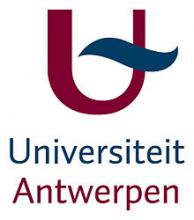- Home
- About
- Partners
- Newcastle University
- University of L'Aquila
- University of Manchester
- Alacris Teranostics GmbH
- University of Pavia
- Polygene
- Consiglio Nazionale delle Ricerche
- INSERM
- Certus Technology
- Charité Universitaet Medizin
- GATC Biotech
- University Medical Center Hamburg Eppendorf
- Evercyte GmbH
- University Hospital of Cologne
- PRIMM Srl
- University of Freiburg
- University of Antwerp
- Finovatis
- Research
- SYBIL at a glance
- Bone
- Growth plate
- Desbuquois dysplasia
- Diastrophic dysplasia
- MCDS
- Osteopetrosis
- Osteoporosis
- Osteogenesis imperfecta
- Prolidase deficiency
- PSACH and MED
- Systems biology
- SOPs
- Alcian Blue staining
- Bone measurements
- BrdU labelling
- Cell counting using ImageJ
- Chondrocyte extraction
- Cre genotyping protocol
- DMMB assay for sulphated proteoglycans
- Densitometry using ImageJ
- Double immunofluorescence
- Electron microscopy of cartilage - sample prep
- Extracting DNA for genotyping
- Grip strength measurement
- Histomorphometry on unon-decalcified bone samples
- Immunocytochemistry
- Immunofluorescence
- Immunohistochemistry
- Quantitative X-ray imaging on bones using Faxitron and ImageJ
- Skeletal preps
- TUNEL assay (Dead End Fluorimetric Kit, Promega)
- Toluidine Blue staining
- Toluidine Blue staining
- Von Kossa Gieson staining
- Wax embedding of cartilage tissue
- Contact Us
- News & Events
- Links
- Portal
University of Antwerp
 The University of Antwerp is characterised by its high standards in education, internationally competitive research and entrepreneurial approach. It was founded in 2003 after the merger of three university institutions but has his roots go back to 1852. The University of Antwerp has about 15.000 students and 4000 staffmembers. The department of medical genetics employs about 80 people. They provide clinical genetic services as well as diagnostics at the molecular and cytogenetic level. Furthermore, basic research is performed aiming to identify genetic factors underlying a broad spectrum of genetic diseases. These include monogenic, Mendelian disease as well as complex, multifactorial diseases. The expertise as well as state-of-the-art equipment is available to perform a wide range of molecular genetic experiments. For functional studies cell culturing infrastructure is available.
The University of Antwerp is characterised by its high standards in education, internationally competitive research and entrepreneurial approach. It was founded in 2003 after the merger of three university institutions but has his roots go back to 1852. The University of Antwerp has about 15.000 students and 4000 staffmembers. The department of medical genetics employs about 80 people. They provide clinical genetic services as well as diagnostics at the molecular and cytogenetic level. Furthermore, basic research is performed aiming to identify genetic factors underlying a broad spectrum of genetic diseases. These include monogenic, Mendelian disease as well as complex, multifactorial diseases. The expertise as well as state-of-the-art equipment is available to perform a wide range of molecular genetic experiments. For functional studies cell culturing infrastructure is available.
University of Antwerp roles in SYBIL
The role of our organisation in the project will involve the contribution to several WPs. We will be workpackage leader of WP1 related to the prioritization of disease causing variants. Furthermore, we will be involved in the functional validation of genetic variants in cellular and mouse models. Finally we will help with the spreading of excellence and teaching.
Facilities available at UA include the facilities available in the department, as well as access to a fully equipped animal facility.
University of Antwerp researchers involved in SYBIL
 Prof Wim Van Hul – Professor in molecular biology and genetics, Male, Head of research team, more than 20 years of experience in basic research aiming the identification of causal genes for monogenic and multifactorial diseases, identified the causal genes for several skeletal diseases (sclerosteosis, Van Buchem disease, Camurati-Engelmann disease, autosomal dominant osteopetrosis...). He will contribute to the prioritization of genetic variants relevant for RSDs and Csds and the functional study of these genetic variations.
Prof Wim Van Hul – Professor in molecular biology and genetics, Male, Head of research team, more than 20 years of experience in basic research aiming the identification of causal genes for monogenic and multifactorial diseases, identified the causal genes for several skeletal diseases (sclerosteosis, Van Buchem disease, Camurati-Engelmann disease, autosomal dominant osteopetrosis...). He will contribute to the prioritization of genetic variants relevant for RSDs and Csds and the functional study of these genetic variations.
 Prof Geert Mortier – Professor in clinical genetics, Male, Head of medical genetics department, about 20 years of experience in clinical genetics and associated research, broad expertise in skeletal dysplasias, member of the international nosology working group on skeletal dysplasias, identified the causal genes for several skeletal diseases (acrocapitofemoral dysplasia, spondylo-metaphyseal-metaphyseal dysplasia, osteopoikilosis...). He will be involved in the selection of relevant genetic variants and training.
Prof Geert Mortier – Professor in clinical genetics, Male, Head of medical genetics department, about 20 years of experience in clinical genetics and associated research, broad expertise in skeletal dysplasias, member of the international nosology working group on skeletal dysplasias, identified the causal genes for several skeletal diseases (acrocapitofemoral dysplasia, spondylo-metaphyseal-metaphyseal dysplasia, osteopoikilosis...). He will be involved in the selection of relevant genetic variants and training.


